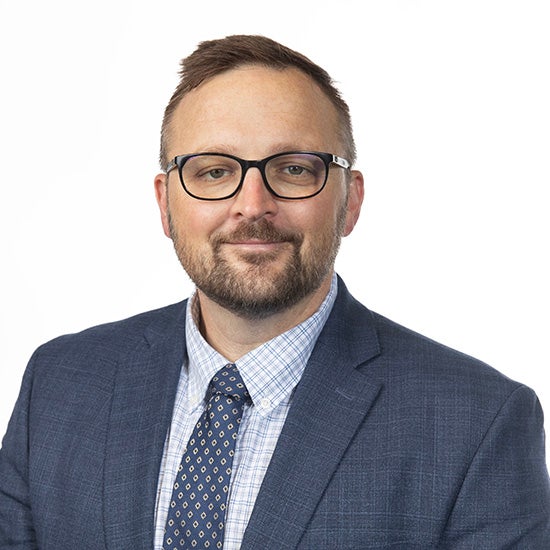
M.A. Archaeology and Biblical Studies
Program Overview
Gain professional experience and develop core archaeological skills all while connecting your work to a spiritual foundation with Lipscomb’s Masters in Archaeology and Biblical Studies program. Prepare for a terminal degree that leads to a career as a biblical archaeologist, and acquire the necessary knowledge to practice Bible archaeology in the field or to teach in a humanities-based discipline. This archaeology degree is rooted in:
- Core Knowledge: Develop understanding of concepts, terms and theories, and explore the disciplines of archaeology and biblical archaeology, specifically how these disciplines interface.
- Skill Acquisition: Learn in a real-world setting by participating in a field school overseas in the Middle East. Process and handle material culture in at least two lab courses.
- Career Orientation: Become a competitive and attractive candidate for a Ph.D. program through primary research, membership in professional organizations and presentations at national and regional meetings of the profession.
- Lifelong Learning: Cultivate a plan and ethos for learning for life with an emphasis on adapting to the changing modern world.
Complete more than 200 hours of internship work in field schools, museum studies or lab work along and participate in at least one excavation season. Guided by leaders in the field, you will develop your ability to design and independently pursue a viable research project through your thesis work. With hands-on experience in and research capabilities, you will graduate as an active member of the scholarly archaeological guild.
What is Biblical Archaeology?
The Lipscomb University Master's of Archaeology program is based on the truth and research of the bible. Students will work in conjunction with the Hazelip School of Theology to merge the ideals and intersections of archaeology and theology.
Archaeology and Biblical Studies Program Outcomes
Lipscomb’s Master’s in Archaeology and Biblical Studies prepares students to be contributing members to academic conversations in archaeology, history, theology and more. As a graduate, you will have had the opportunity to conduct primary research and present your work at scholarly conferences, such as American Schools of Oriental Research, Society of Biblical Literature, and Southeastern Commission for the Study of Religion among others.
Upon completion of this Bible archaeology program, students will have acquired these academic skills and experiences:
- Archaeological material studies
- Museum studies and lab work
- Development and presentation of primary research
- Integration of social science and biblical studies
- Knowledge of methods and theories in archaeology
- Spiritual development in a Christian community
Why Earn Your Degree at Lipscomb?
As a student in the archaeology program, you will have access to substantial resources, formative professional experiences and leaders in biblical archaeology. With excavation sites in Israel, Egypt, Cyprus, and Kazakhstan, you will be able to travel globally and learn in the field. You will study from six museum collections and two archives available through the Lanier Center. Supported by our esteemed faculty, you will also have the opportunity to conduct cutting-edge research and publish your work in established academic journals.
Admissions Requirements
Ready to apply? Let’s get started. We’re here to help at every step. Applicants to the program must hold a bachelor’s degree from an accredited institution and submit the following for admission review and enrollment:
- Completed and submitted online application
- CV detailing applicant's academic work, experience and scholarly achievement (publications, professional presentations, etc.) that has prepared the applicant to benefit from the program.
- $50 non-refundable application fee
- Official college transcripts from all previously attended colleges and universities (including graduate, if applicable)
- Two recommendations: at least one from a university professor and one from either a supervisor/employer or character reference (pastor, priest, mentor).
- Undergraduate GPA of at least 3.0
- A research paper providing evidence of your academic work OR 750-1000 word essay about your career, your interest in archaeology, and how you would use the skills and learnings from our program professionally or personally.
- Interview with faculty (on campus, virtually or by phone)
For transcripts, electronic copies can be emailed directly from your undergraduate institution to gradadmissions [at] lipscomb.edu (gradadmissions[at]lipscomb[dot]edu).
If you are having a hard copy mailed, have it sent to:
Lipscomb University
Graduate Admissions
One University Park Drive
Nashville, TN 37204
Tuition & Aid
Program tuition is $950* per credit hour.
Tuition does not cover excavation costs.
Lipscomb also offers interest-free monthly payment plans depending on the length of each semester.
*Note: Graduate tuition rates may increase annually, effective at the start of the summer term.
Total artifacts
Program Highlights
Alumni and Student Stories
Average students per class
Our Faculty
Faculty to student ratio
Career Paths
Archaeologists
As contributing members of the scholarly guild, archaeologists participate in excavation projects, work in museums and conduct research in the lab. Many also teach archaeology or another humanities-based discipline.
Postsecondary Teachers
Postsecondary teachers instruct students in a wide variety of academic and technical subjects beyond the high school level. They may also conduct research and publish scholarly papers and books.



